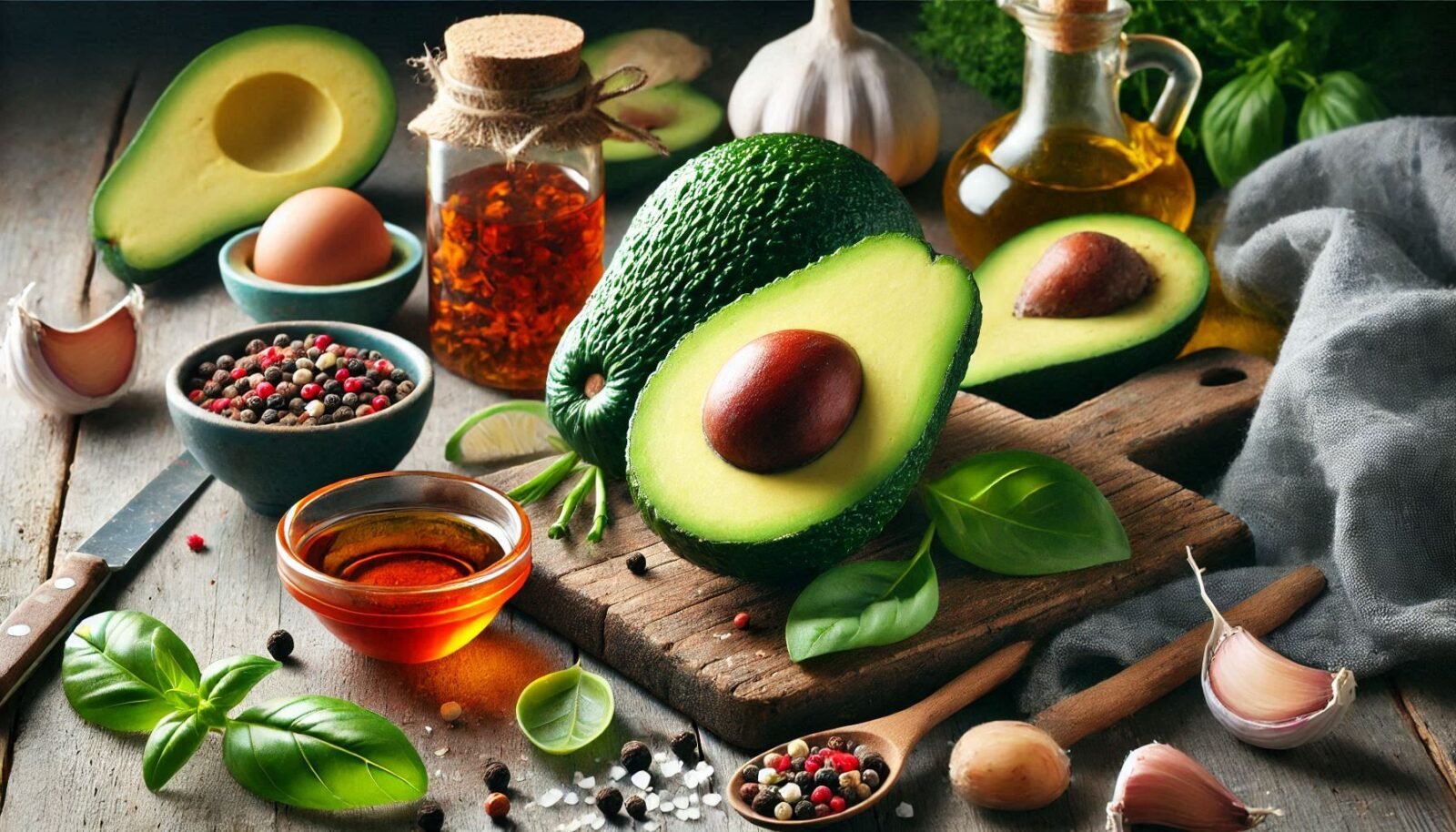Avocado, the fruit of the Persea americana tree, is renowned not only for its rich flavor and culinary versatility but also for its extraordinary health benefits. Native to Central America, this food has gained worldwide popularity thanks to its unique nutritional profile and numerous wellness advantages.
1. Nutritional Values of Avocado
Avocado is an exceptional source of essential nutrients. In 100 grams of pulp, you’ll find:
- Healthy Fats: Rich in monounsaturated fatty acids, such as oleic acid, which promote heart health.
- Fiber: Contains about 7 grams of fiber per 100 grams, useful for improving digestion and promoting satiety.
- Vitamins: A source of essential vitamins, including vitamin K, vitamin E, vitamin C, and some B vitamins like folic acid (B9).
- Minerals: Provides potassium (more than bananas), magnesium, and iron.
2. Health Benefits
Heart Health
Thanks to its monounsaturated fatty acids, avocado helps lower LDL (“bad”) cholesterol levels and increase HDL (“good”) cholesterol levels. This aids in preventing cardiovascular diseases and maintaining healthy arteries.
Blood Pressure Regulation
The potassium in avocado is essential for regulating blood pressure, balancing sodium’s effects, and reducing the risk of hypertension.
Digestive System Support
Avocado’s fiber improves gut health, promoting bowel movement and preventing issues like constipation.
Benefits for Skin and Hair
Thanks to vitamin E and antioxidants, avocado helps keep the skin elastic and hydrated, countering premature aging. Additionally, its nutrients strengthen hair and enhance its shine.
Protection Against Free Radicals
The combination of vitamin C, vitamin E, and other antioxidants combats oxidative stress, reducing the risk of chronic diseases and slowing the cellular aging process.
Eye Health Support
Avocado is rich in lutein and zeaxanthin, two carotenoids that protect the retina and reduce the risk of age-related macular degeneration.
3. Culinary Uses
Avocado is extremely versatile and can be used in many ways:
- Raw: Added to salads, sandwiches, or toast.
- Guacamole: A traditional Mexican dip made with avocado, lime, onion, and spices.
- Smoothies: For a creamy texture and an extra nutrient boost.
- Desserts: Can be used to make vegan chocolate mousse or cakes.
4. How to Choose and Store Avocado
To select a ripe avocado, gently press the skin: it should be soft but not too much. If unripe, it can mature at room temperature in a few days. Once cut, to prevent browning, sprinkle it with lemon juice and store it in the refrigerator.
5. Precautions
Despite its numerous benefits, avocado is a high-calorie food. It is advisable to consume it in moderation, especially if following a low-calorie diet. Additionally, those allergic to latex may also be sensitive to avocado, so caution is needed.
Conclusion
Avocado is much more than a delicious ingredient: it’s a superfood that offers benefits for the heart, skin, eyes, and the entire body. Including it in your daily diet, in moderation, can contribute to improving overall health and well-being.


